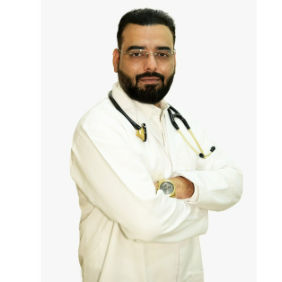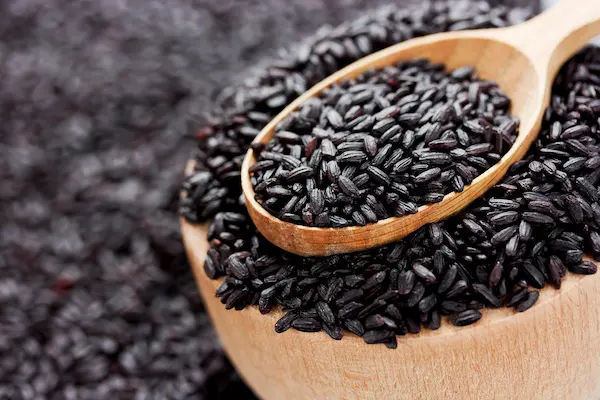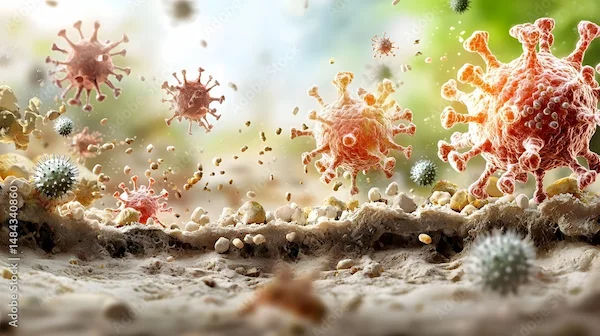Preventing Airborne Infections in Monsoon
Learn how to prevent airborne infections during the monsoon season. Explore common airborne illnesses, including their symptoms, how they spread, and practical tips to stay protected and boost your immunity during the rains.

Written by Dr. Shaik Abdul Kalam
Reviewed by Dr. Rohinipriyanka Pondugula MBBS
Last updated on 20th Aug, 2025

Introduction
The monsoon season brings relief from the scorching summer heat, but it also increases the risk of airborne infections. The damp and humid weather creates the perfect environment for viruses and bacteria to thrive, leading to illnesses like colds, flu, and other respiratory infections.
If you or your loved ones frequently fall sick during the rainy season, this guide will help you understand how to stay safe and healthy.
What Are Airborne Infections?
Airborne infections are diseases caused by tiny germs (viruses, bacteria, or fungi) that spread through the air when an infected person coughs, sneezes, or talks. These germs can linger in the air or settle on surfaces, making it easy for others to inhale or touch them and get sick.
Common Airborne Infections in Monsoon
Some frequently seen airborne infections that tend to rise during the monsoon season include:
1. Common Cold & Flu – Caused by viruses like rhinovirus and influenza, leading to fever, cough, and body aches.
2. COVID-19 – Still a concern, especially in crowded places.
3. Tuberculosis (TB) – A bacterial infection affecting the lungs.
4. Dengue & Chikungunya (though primarily mosquito-borne, poor hygiene can contribute).
5. Respiratory Syncytial Virus (RSV) – Common in children, causing cold-like symptoms.
Consult Top Specialists for Personalised Tips
Symptoms of Airborne Infections
Watch out for these signs, especially during monsoon:
Fever and chills
Cough, sore throat, or runny nose
Difficulty breathing
Fatigue and body aches
Headaches
Loss of taste or smell (in some cases)
If symptoms persist or worsen, consult a doctor immediately.
How Do Airborne Infections Spread?
Airborne infections are easily transmitted, especially during the monsoon season. Here's how they typically spread:
1. Direct Contact – Being near an infected person who coughs or sneezes.
2. Contaminated Surfaces – Touching doorknobs, railings, or phones and then touching your face.
3. Poor Ventilation – Closed spaces with no airflow trap germs.
4. Weak Immunity – People with low immunity (children, elderly, chronic illness patients) are more vulnerable.
How to Prevent Airborne Infections in Monsoon?
Protecting yourself from airborne infections becomes especially important during the monsoon season. Here are some effective ways to prevent them:
1. Wear a Mask in Crowded Places
Masks help block respiratory droplets. If you’re in a crowded or poorly ventilated area, wearing a mask (especially an N95 or surgical mask) reduces infection risk.
2. Wash Hands Frequently
Use soap and water for at least 20 seconds, especially after touching surfaces in public places. Carry a hand sanitizer (with at least 60% alcohol) when outside.
3. Keep Your Surroundings Clean
Disinfect frequently touched surfaces (doorknobs, phones, keyboards).
Ensure proper ventilation at home and workplace.
Avoid stagnant water to prevent mosquito breeding.
4. Boost Your Immunity
Eat a balanced diet rich in Vitamin C (citrus fruits), Vitamin D (sunlight, eggs), and Zinc (nuts, seeds).
Stay hydrated with warm fluids like herbal teas and soups.
Get enough sleep (7-8 hours) to strengthen your immune system.
5. Avoid Close Contact with Sick People
If someone around you is coughing or sneezing, maintain distance. If you’re sick, stay home to prevent spreading the infection.
6. Get Vaccinated
Flu shots can prevent seasonal influenza.
COVID-19 vaccines reduce severe illness risk.
TB vaccination (BCG) is recommended for children.
Consult your doctor about necessary vaccinations.
7. Use Air Purifiers or Humidifiers
If indoor air quality is poor, an air purifier with a HEPA filter can help remove airborne germs. A humidifier can keep air moisture balanced, preventing dry nasal passages that make you prone to infections.
When to See a Doctor?
Seek medical help if you experience:
High fever lasting more than 3 days
Severe cough with breathing difficulty
Persistent chest pain
Bluish lips or face (sign of oxygen shortage)
Early diagnosis and treatment prevent complications.
Final Thoughts
Monsoon brings joy but also health risks. By following simple hygiene practices, boosting immunity, and staying cautious, you can enjoy the rains without falling sick.
Consult Top Specialists
Consult Top Specialists for Personalised Tips

Dr. Swathi Reddy Perugu
General Physician/ Internal Medicine Specialist
7 Years • MBBS, MD (General Medicine)
Hyderabad
Health plus, Hyderabad

Dr. Ramya Hari
General Practitioner
18 Years • Medical Head & Family Physician, DG Shipping Approved Doctor, Panel Physician - UK Visa Medicals
Chennai
Apollo Medical Centre Kotturpuram, Chennai

Dr Rajashree Dhongade
General Physician/ Internal Medicine Specialist
9 Years • MD.Medicine,Fellowship in Critical Care Medicine (MUHS)
Nashik
Apollo Hospitals Nashik, Nashik
(25+ Patients)

Dr Anand Jat
General Physician/ Internal Medicine Specialist
8 Years • MBBS, MD Medicine
Bhopal
Apollo Sage Hospitals, Bhopal

Dr. Hari Krishna
General Physician/ Internal Medicine Specialist
13 Years • MD (Gen. Med. )
Chennai
Apollo Hospitals Greams Road, Chennai
(50+ Patients)
Consult Top Specialists

Dr. Swathi Reddy Perugu
General Physician/ Internal Medicine Specialist
7 Years • MBBS, MD (General Medicine)
Hyderabad
Health plus, Hyderabad

Dr. Ramya Hari
General Practitioner
18 Years • Medical Head & Family Physician, DG Shipping Approved Doctor, Panel Physician - UK Visa Medicals
Chennai
Apollo Medical Centre Kotturpuram, Chennai

Dr Rajashree Dhongade
General Physician/ Internal Medicine Specialist
9 Years • MD.Medicine,Fellowship in Critical Care Medicine (MUHS)
Nashik
Apollo Hospitals Nashik, Nashik
(25+ Patients)

Dr Anand Jat
General Physician/ Internal Medicine Specialist
8 Years • MBBS, MD Medicine
Bhopal
Apollo Sage Hospitals, Bhopal

Dr. Hari Krishna
General Physician/ Internal Medicine Specialist
13 Years • MD (Gen. Med. )
Chennai
Apollo Hospitals Greams Road, Chennai
(50+ Patients)




